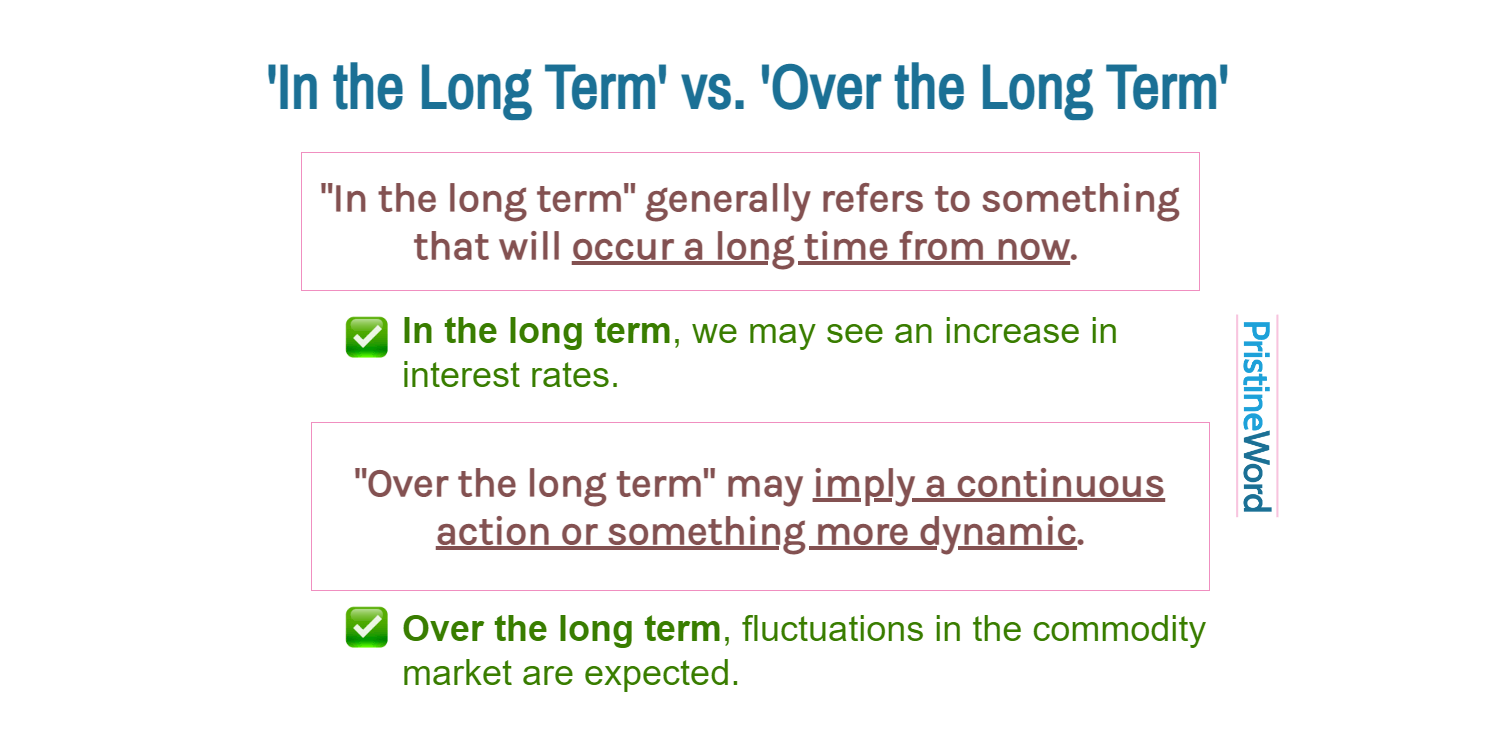"In the long term" and "over the long term:" What's the difference?
Although both "In the long term" and "over the long term" can frequently be used interchangeably, there might be subtle nuances in meaning.
"In the long term" generally refers to something that will occur a long time from now. It may imply something more definitive or static.
In the long term, renewable energy will be more cost-effective than fossil fuels. (This suggests that at some point in the future, renewable energy will definitively be more cost-effective.)
"Over the long term" may imply a continuous action as well as something more dynamic or ongoing.
In the long term, investing in the stock market has generally been profitable. (This suggests that continuously, across various points in the future, investing in the stock market is likely to be profitable.)
In many scenarios, however, both terms are acceptable and deemed correct:
Proper healthcare now ensures better health in the long term/over the long term.
Investing in education pays off in the long term/over the long term.
You could potentially use either phrase in many situations without greatly altering the meaning. However, selecting one over the other might provide more precise shading to the timeframe and nature of what you are discussing.
Apply the same approach to the expressions "in the short term"/"over the short term" and "in the medium term"/"over the medium term."

